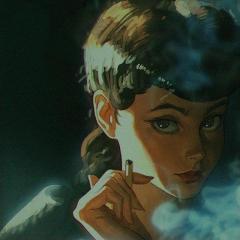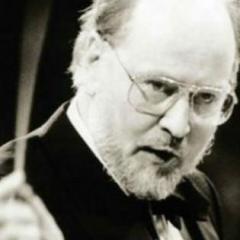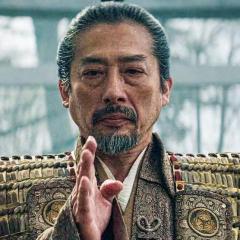Leaderboard
Popular Content
Showing content with the highest reputation on 07/02/13 in all areas
-

Dec. 5 2013 - Williams Conducts The Houston Symphony! With Yo-Yo Ma!
alicebrallice and one other reacted to Saxbabe for a topic
I just came home and turned on my computer, checked my email, and saw a note that the Houston Symphony's announcement of their 13-14 season was being webcast. Clicked on the link, and the second the video loaded, the first thing I saw was a big picture of John Williams and heard them saying that he is coming HIMSELF and conducting here and Yo-Yo Ma too (I think Cello Concerto) and they are also doing film scores and there will be a MEET & GREET afterward. O.M.G. I thought I had fallen into an alternate universe and had to pinch myself. Next year is the Symphony's 100th anniversary, so there are a lot of awesome things happening. Right after they announced the JW concert, was mention of a performance of Mahler 8 with Eschenbach, which they are building a special stage extension for. And apparently John Adams is coming as well to conduct his new piece CIty Noir. And also, they have just named a new conductor who looks a lot like Gustavo Dudamel of the LA Phil. This is all the info I know now on the JW concert, they don't even have the season brochure or concert listings up yet. Linkage: http://www.houstonsymphony.org The very second I hear you can buy tickets, I'm in! Who else is! I live here now (I work at the Museum of Natural Science), so I would also be up for organizing whatever get-together etc. we would like to do. Oh also - hello my beloved JWFan, yes I have been away too long, but I do lurk still! ~g2 points -
This idea will at least make it easier for me to skip even more rambling sermon threads.2 points
-
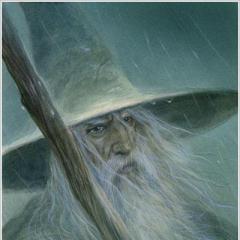
"Talk Like Incanus About FIlm & Film Music Thread" (MINIMUM 200 WORD POSTS)
BLUMENKOHL and one other reacted to Incanus for a topic
I would say that it is even unfair to compare LotR and SW in terms of thematic application, development and thematic loyalty as both works were created with quite a different philosophy and structuring. Star Wars is much more loose in its thematic application from the start, neither as intricate nor as meticulously rigorous. Again this is not a detraction of Williams' work or overt praise for Shore's but an observation made by a fan of both. Star Wars by Williams' own admission was something he didn't think would yield anything beyond the first film, a Saturday matinee movie for kids and youngsters. When the franchise suddenly grew out of the first film with it came a possibility for musical development and growth. Williams added this theme here and another there, a motif for this and that sequence, character or concept but it was more like building as you go along waiting for the blueprints for the next part of the house than planning ahead or making some grander musical arc. The original trilogy was in hindsight much more coherent piece as its story was unified with common elements, which allowed for the musical counterparts for characters and ideas to return in regular intervals while still producing new elements to depict musically. The Prequels are their own story entirely in the way Williams applied his old material and invented new themes for the films. The certain choppiness of the story from prequel to prequel certainly affected the way his music turned out I think. Williams also approached SW with central leitmotifs in mind, not even attempting to create a competition or comparison with intricacies of Wagnerian proportions. This works well as the clarity of these central ideas facilitate the story telling with clear lined and direct musical ideas that people can latch onto. He also became a bit more economic in the Prequels and produced a greater amount of smaller ideas, which were perhaps meant as musical seeds that might grow in the subsequent films or could work as one-off motifs for quickly passing story elements that are so numerous in the Prequels. Lord of the Rings was a bit different because it is an adaptation and Shore had a blueprint or a very detailed, more detailed than the films infact, source material to build upon. Of course the audio-visual link has to be there and is only available in the film itself with all its demands and challenges and Shore had to work on the film and not just based on the book, but the arc of the whole story was clear to the composer from the start. Shore is a very cerebral composer and tackled the job with enthusiasm and dived into the literary research for an extended period of time. Whatever the germination process of the musical ideas was, his work very soon started to have a Wagnerian cast to it, the leitmotifs becoming a very pronounced and central idea of the whole trilogy of scores, their number and constant flow becoming a unique feature in comparison with most other film scores, the whole count of these coming close to a hundred. Shore also worked intensively on LotR alone for 4 years, practically never stopping his process and taking very few other assignments during that time period. He spent most of his time in this musical bubble and lived with the music, theatrical cuts and extended cuts and adjustments and tweaks and rewrites, rethinking and moulding the music over a long period of time. This was much more intensely focused period of creation, whether for good or for ill, than Williams had with SW scores, Maestro scoring numerous films between Episodes. E.g. in 2002 and 2005 for Episodes II and III respectively Williams scored three other films in the same year. Whether this has any effect on the quality or merit of the scores themselves is largely up to individual listeners and their tastes of course but those are interesting things to consider when comparing these two works. The Hobbit trilogy is just starting and I would say it is off to a good start, equally promising as Episode I was for SW music in 1999. Let's see how Shore succeeds with the sequels, especially when the sometimes baffling musical cross referencing and scoring decisions already appeared in the Unexpected Journey. I am curious to see and hear how will Shore's "prequel" trilogy turn out in the end.2 points -

"Talk Like Incanus About FIlm & Film Music Thread" (MINIMUM 200 WORD POSTS)
Incanus and one other reacted to BLUMENKOHL for a topic
Alright guys, let's stop with the short posts! I've been listening to a lot of Williams and Goldsmith "standards" in the last week and my listening has been mostly focused on their long term works. Namely Star Trek and Star Wars. And what I find really interesting is that John and Jerry were rather inconsistent in their development and usage of themes and motifs within their franchises as time progressed. Even in cases where they knew where the adventures would go. The Star Wars original trilogy sees the sudden replacement of the Imperial theme. The prequels see the sudden drop of Anakin's Theme. Star Trek sees the introduction of the four note motif in Star Trek V, that returns in First Contact and all but disappears in the next two films. The Klingon Theme graces three movies and all but disappears in the next two. I was a little puzzled over why. I kept trying to ascribe some logical reasoning behind it, and none quite seemed to work perfectly. The one that kept gnawing at me was the Imperial theme change from Star Wars to Empire. Why the sudden change? Why not just give Vader his own theme and keep the pretty damn good Imperial theme from Star Wars? And then I looked at my own work. We've done sequels to titles where I work, and we haven't been completely consistent in carrying things from title to title. We've done a good job, but we've definitely changed things. And when I put it in that perspective the answer is much more clear. There are of course other reasons, but this is a very important factor: boredom and experience. Committing yourself long term to something you created when you were less experienced and less skilled is one of the most difficult things you can do as someone who creates. When you go back to things that came before, you either feel like you can do better, or my god you feel dread and boredom looking at the same thing day in and day out. It can actually be a struggle to work on something you've already done, and find ways of improving it, when all you really want to do is start a-fresh and put down that incredible new idea you have. It's actually something we work very hard at balancing where we work. Because we all get bored. We all have new and better ideas. And you can't do your best work if you're not energized and excited about what you're doing. But we're also working in the context of something that needs a semblance of continuity. And it's a bitch to strike that balance. So I wonder, how much of the inconsistencies in John and Jerry's franchise works stem from sheer boredom with great ideas that they felt were too boring to work on over and over? And just as an example, consider Giacchino's Lost. It's actually incredibly and almost frighteningly consistent in terms of themes and development. Why does Giacchino succeed, where Goldsmith and Williams couldn't? And I think the answer lies in this: Lost changed so much as a show and introduced so many new ideas, that at almost every point in the show Michael had something fresh and exciting and new to work on. This meant he could keep consistency while at the same tackling a lot of new and exciting stuff. There was no creative need to can the "stale" stuff, there was plenty of new to work on.2 points -
You've probably seen this documentary on the score for ESB before at some point, but a thread on JW's sketches reminded me of this bit from it. It's so rare to see this kind of footage of not just Williams, but any composer working with an orchestrator. I especially like how Williams explains exactly what his daily procedure is for writing for a big orchestra. The bit with Spencer starts at the beginning and is short, but still pretty informative. (Right after this, we see Williams working with a movieola, a now obsolete item used to synch the music - cool.)1 point
-
It is a very subdued score Lee although it has some fine highlights: Among the Clouds has one of the most beautiful horn solos by James Thatcher, the whole track a great impressionistic tone poem unto itself. Pete and Dorinda contains the charming romantic piano solo heard also on the Spielberg/Williams album suite. The Rescue Operation contains ethereal slow burn drama and Dorinda Solo Flight is a poignant finale. The score is quite sparse and less thematic than most JW/Spielberg collaborations and it contains quite a few atmospheric tracks. I would not absolutely recommend it if you are not a die hard JW fan.1 point
-

"Talk Like Incanus About FIlm & Film Music Thread" (MINIMUM 200 WORD POSTS)
Jay reacted to BLUMENKOHL for a topic
I'm getting tired of 1) Typing up tweets on this forum and 2) Reading tweets on this forum. I suppose I could make a thread bitching about it, and make Jason LeBlanc delete any post that is 140 characters or less, but no. I'm just going to do something to change it myself. So in an effort to encourage some substantial discussion about our beloved topics, I welcome you all to the "Talk Like Incanus About FIlm & Film Music Thread" where every post must have a minimum of 200 words. "But Blume! Blume! I'm a candy ass! HOW DO I KNOW HOW MANY WORDS I'VE TYPED?" Well you incompetent nincompoop, most word processing software will count the words in your text. Find out how to do it by running a damned Google search. If you can't find it and don't want to count your words by hand then by all means head on over here: http://www.javascriptkit.com/script/script2/countwords.shtml copy and paste your damned text and verify that it meets the minimum requirements for posting in this thread. The idea is this: you should only discuss something worth talking about and worth talking about at length in this thread. If you can't make it to 200 words, then it's 75% likely it's just not something worth talking about. So have at it, got a movie or score or composer you want to talk to and or discuss at length? Here is your chance. Tweeters will be shot.1 point -
This is quite true and LotR scores are certainly not entirely free of revisions and re-envisioning of things. For some reason the way the music was moulded in the trilogy was easier to accept as there seemed to be a more convincing logic behind it than what I now hear in the Hobbit ( e.g. adding Nature's Reclamation to Helm's Deep or consistently changing the Seduction of the Ring theme appearance into sound effects). Even the attachment of the Nature's Reclamation to the Rohirrim was acceptable to me by the way of the Rohirrim standing for the whole purity in Nature that goes against the evil of Sauron. And most likely PJ just thought it would sound cool and heroic for the charge. This is a good point and when you look at the story arc of the Prequels there are very few connections between the Episodes, often years passing between them and we are whisked into a completely new story every time with only a few central characters, whose leitmotifs are in flux or not strongly addressed (Anakin, Obi Wan and Padme). Also Lucas seems to experiment with different genres and demand very different musical approaches each time. As we know it is not always the composer but in large part the vociferous and very articulate producer/director, who can affect the music. Even temp-track bleeds became more pronounced in Episode III and everything I read about the scoring of the Prequels suggests that Lucas really went down to specific themes in his spotting comments with Williams, leaving him very little room to operate. Peter Jackson was no less articulate with his demands on Shore yet there was still a more unified approach and arc to the whole process where the style and genre didn't suddenly change from film to film so rapidly along with the scoring requirements. The time afforded to score the film might work either way, too much or too little. Williams took the regular 2 to 3 months per Prequel I guess in comparison to a year for a single LotR score by Shore. The Prequels were usually the first film assignments of the year for him so he might not be so much affected by the other projects but producing about 2 hours of music for several films a year, especially when they all touch generally the same styles and moods might be somewhat daunting. So would more time make things better or worse depends on the composer. Often a schedule and a pressure can work as a stimulant for heightened creative impetus or it could stall the process. Williams works very well under the schedules and rigorously produces 2 minutes of music a day. Also a year might afford time to reassess and rethink, tweak, discuss and adjust in a way that is beneficial to the music and the whole film making collaboration. Still Shore was nearly driven to the ground by PJ's gruelling last minute post production schedules so it could be argued that he didn't have that leisurely time either with LotR scores but he was inside the process all the time and not separated by years and different projects with their varied demands inside his head. And it is a good point that Williams might have deliberately kept his musical ideas concise and limited as they would be by all likelyhood put under the knife anyway before the next film. I would view JG's Star Trek scores as a bit different musical world and approach than JW's Star Wars. As with the TV series the films are really single episodes, individual moments in the continuing story of Star Trek. Goldsmith approached the series of films very admirably I think, always inventing a new musical landscape or feel for each film yet keeping the main theme and some established signature motifs like the Klingon theme as recurring musical cast. Since the musical arc is only of one film, there is no actual pressure or demand of overarching structure to span several movies. Closest that he came to that was indeed in the use of the Quest motif from ST V in First Contact, which I guess was more of a backbone or framework material for the whole musical world rather than having a fully formed specific leitmotivic significance. But Goldsmith was also free to come up with new set of themes for each film without even having to contemplate reprising much of the old outside the inimitable JG Star Trek sound.1 point
-
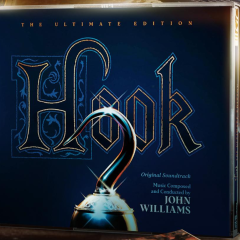
"Talk Like Incanus About FIlm & Film Music Thread" (MINIMUM 200 WORD POSTS)
BLUMENKOHL reacted to Jay for a topic
If you don't want to participate, stay out of the thread1 point -

"Talk Like Incanus About FIlm & Film Music Thread" (MINIMUM 200 WORD POSTS)
BLUMENKOHL reacted to Jay for a topic
I know, but I like when Blume writes about film music, and if he expects us to write eloquent posts I figured he should lead the way by leading by example and starting us off with one.1 point -
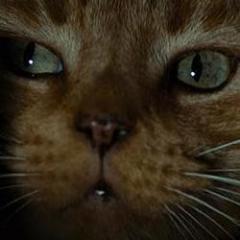
What Is The Last Score You Listened To? (older scores)
alicebrallice reacted to Jonesy for a topic
I think it's my favourite cue of the score.1 point -
Hum, repetition was a big part of the humour there, specially since it was about time travel. The whole thing is brilliantly put together.1 point
-
Um, that started in 1999.1 point
-

The Official Michael Giacchino Thread
Marian Schedenig reacted to Brónach for a topic
That must be my favourite short ever.1 point -

The Official Michael Giacchino Thread
Marian Schedenig reacted to Brónach for a topic
Ratatouille is my favourite film score of his, then John Carter. And this is just awesomeness: We've had enough Lost! More of that!1 point -
This is what I see in Boal's posts: <object seamlesstabbing="undefined" class="BrightcoveExperience" id="myExperience7241583144" data="http://c.brightcove.com/services/viewer/federated_f9?&width=600&height=338&flashID=myExperience7241583144&bgcolor=%23FFFFFF&wmode=transparent&autoStart=false§ionName=%2Fentertainment%2Fnews&contentItemType=embed&omnitureServer=latimes.com&omnitureAcct=tribglobal&playerID=782523707001&playerKey=AQ~~%2CAAAAtkVbcwk~%2C5Rx45u37p7At4uUFYYBfI0whp8ObLWHD&adServerURL=http%3A%2F%2Fad.doubleclick.net%2Fpfadx%2Ftrb.latimes%2Fent%2Fblog%2Fhero&additionalAdTargetingParams=%3Bplayer%3Dbc%3Bpos%3Dpre%3Bvc%3DNews%3Bclip%3D68761348%3Bsz%3D3x3%3Btile%3D13%3Bord%3D472106550&externalAds=true&linkBaseURL=http%3A%2F%2Fherocomplex.latimes.com%2F2013%2F01%2F16%2Fhobbit-fx-wiz-joe-letteri-on-gollum-the-goblin-king-and-azog%2F&isVid=true&isUI=true&dynamicStreaming=true&showNoContentMessage=true&%40videoPlayer=ref%3A74038517&debuggerID=&startTime=1358510983772" type="application/x-shockwave-flash" height="338" width="600"><param value="always" name="allowScriptAccess"><param value="true" name="allowFullScreen"><param value="false" name="seamlessTabbing"><param value="true" name="swliveconnect"><param value="transparent" name="wmode"><param value="high" name="quality"><param value="#FFFFFF" name="bgcolor"></object> <object seamlesstabbing="undefined" class="BrightcoveExperience" id="myExperience4354948685" data="http://c.brightcove.com/services/viewer/federated_f9?&width=600&height=338&flashID=myExperience4354948685&bgcolor=%23FFFFFF&wmode=transparent&autoStart=false§ionName=%2Fentertainment%2Fnews&contentItemType=embed&omnitureServer=latimes.com&omnitureAcct=tribglobal&playerID=782523707001&playerKey=AQ~~%2CAAAAtkVbcwk~%2C5Rx45u37p7At4uUFYYBfI0whp8ObLWHD&adServerURL=http%3A%2F%2Fad.doubleclick.net%2Fpfadx%2Ftrb.latimes%2Fent%2Fblog%2Fhero&additionalAdTargetingParams=%3Bplayer%3Dbc%3Bpos%3Dpre%3Bvc%3DNews%3Bclip%3D68761348%3Bsz%3D3x3%3Btile%3D13%3Bord%3D472106550&externalAds=true&linkBaseURL=http%3A%2F%2Fherocomplex.latimes.com%2F2013%2F01%2F16%2Fhobbit-fx-wiz-joe-letteri-on-gollum-the-goblin-king-and-azog%2F&isVid=true&isUI=true&dynamicStreaming=true&showNoContentMessage=true&%40videoPlayer=ref%3A74038553&debuggerID=&startTime=1358407293514" type="application/x-shockwave-flash" height="338" width="600"><param value="always" name="allowScriptAccess"><param value="true" name="allowFullScreen"><param value="false" name="seamlessTabbing"><param value="true" name="swliveconnect"><param value="transparent" name="wmode"><param value="high" name="quality"><param value="#FFFFFF" name="bgcolor"></object>1 point

